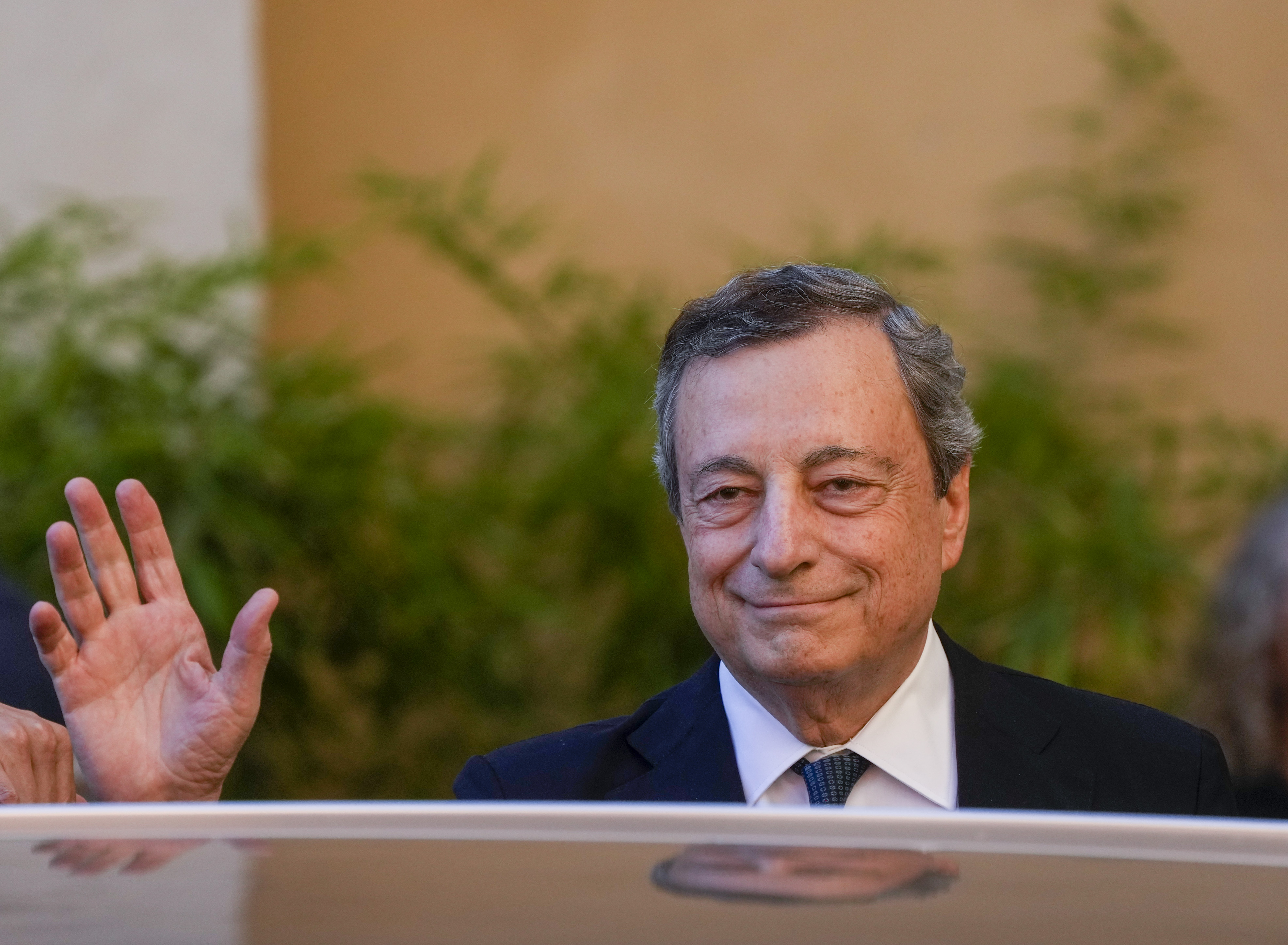Government crisis
Italy falls back into old habits

It has been clear since yesterday evening: In Italy, the government is once again on the verge of collapse. Italy is falling back into decades-old habits in which party and power struggles have regularly led to the collapse of governments. What does this mean for Europe's third-largest economy?
The non-party technocrat Mario Draghi took office with an ambitious plan of leading Italy out of the Corona crisis by the next regular elections in 2023, implementing the reconstruction plan with around 200 billion euros from the EU's Corona aid package and putting Italy back on a path of growth. "I guarantee reform," Draghi said when he took office and he kept his word. Things went well: the economy recovered and the pandemic seemed to be over thanks to a clear plan. Politically, the country experienced a turning point when Mario Draghi took office in 2021 and there was a period of unusual political stability with Sergio Mattarella's re-election as president. But yesterday, Prime Minister Draghi handed in his resignation to President Sergio Mattarella.
The resignation was preceded by a vote of no confidence in the Senate, which Draghi easily won with 172 votes in favour and only 39 against, but in which the 61 senators of the co-governing Five Star Movement, by not participating in the vote, de facto denied Draghi their allegiance and thus their confidence. The Five Star Movement rejected the idea that the vote of confidence was intended to push through a decree for billions in support due to rising energy prices and inflation for families and businesses. Among other things, they demanded more money and wished to prevent the mayor of Rome from being granted special powers to quickly build a waste incineration plant. Behind the dispute, however, was first and foremost a political calculation: the populist Five Star Movement is in an unstoppable downward spiral. As a former governing party (after all, the movement was briefly the strongest political force and, with its current party leader Giuseppe Conte, provided the head of government until 2021), they are now at around just 10% in opinion polls. The Five Star Movement wanted to use the dispute over support payments to raise its profile and win back votes.
In retrospect, it can be said that the Five Star Movement recklessly let the "government of national unity" collapse. Draghi consequently resigned, as his mandate no longer exists in its current form. He does not wish to preside over a coalition that is at loggerheads and politically incapable of acting. Behind the scenes, the huge coalition of "national unity" has been seething for some time; it is an amalgamation of completely different parties that are actually hopelessly at odds. The Five Star Movement was quick to declare after the vote that this was not a break with the coalition, but one can only shake one's head at this manoeuvre, which is politically irresponsible. They played with fire and plunged Italy into another deep governmental crisis, and at an inopportune time, too, in the face of drought, inflation, the war in Europe and a pandemic that is only just behind us.
Now it is largely up to President Mattarella which way out of this government crisis the country will take. In addition to ceremonial responsibilities, the Italian president plays a central role as a stabilising force in situations of political instability. Mattarella refused Draghi’s resignation and called on him to address both houses of parliament, the House and the Senate, next week to see if he can rally new supporters behind him and form a new government. It remains to be seen whether Draghi can achieve this. Alternatively, Mattarella could appoint an interim head of government to take over until the next general election. Giuliano Amato, president of the Constitutional Court, is being considered a candidate.
Early elections are also being considered. But this could lead to the nightmare of a shift to the right in Italy and consequently in Europe as a whole: the winner would probably be the extreme right-wing Fratelli d'Italia party, which remained in opposition and did not join the government coalition. In polls, they are consistently in the lead. Party leader Giorgia Meloni, also president of the right-wing European Conservatives and Reformers (ECR) party, among other things, is a charismatic leader who speaks skilfully and appears responsible. But in opinion polls, he still trails Lega leader Matteo Salvini on the far right. In the ranks of his EU-sceptic party, there are dyed-in-the-wool fascists. In a coalition with the other right-wing parties of Lega and Forza Italia, an election victory would be certain.
One bright spot is that, in the centre of the political spectrum, liberal parties like PiuEuropa, Azione, Ali and others are moving closer together. Recently, for example, a committee for the protection of liberal democracy was founded together with the think tank Fondazione Luigi Einaudi for deeper cooperation. The liberal, pro-European parties, which include ex-Prime Minister Matteo Renzi's Italia Viva, are part of the governing coalition and supported Mario Draghi's candidacy from the beginning. They are committed to another government with Draghi at the helm and want to continue their course of modernisation after the next parliamentary elections – whenever these may take place.
